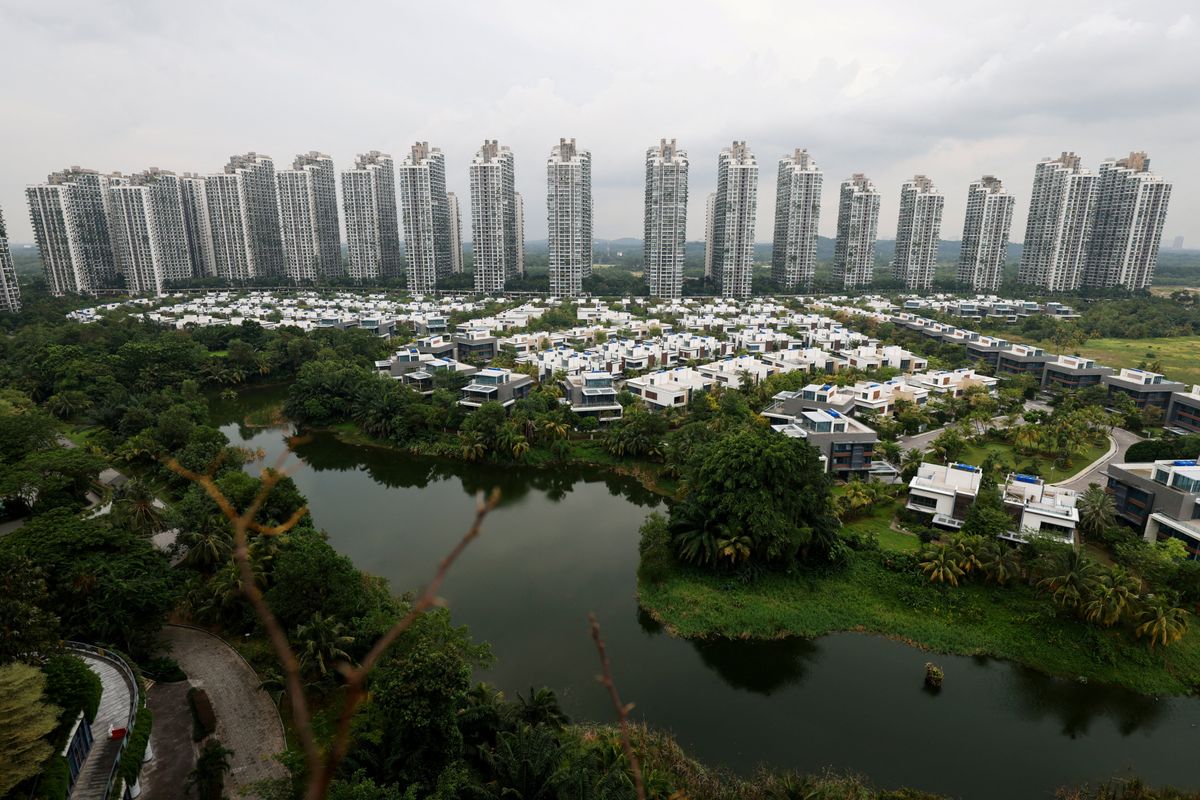Country Garden's creditors approve bond extensions
On Monday, Country Garden had a crucial meeting with its creditors.

A few minutes every morning is all you need.
Stay up to date on the world's Headlines and Human Stories. It's fun, it's factual, it's fluff-free.
The backstory: Since late 2021, China's property sector has been on a rollercoaster ride. We're talking defaults left and right, leaving homes unfinished and creditors empty-handed. This is a big deal because China's real estate market is a huge part of the economy, making up as much as 30% of the country's GDP.
The trouble started when property giants like Evergrande found themselves drowning in debt. Nearly two years ago, Evergrande's first stumble set off a domino effect of defaults across the industry.
Another player on the field facing troubles is Country Garden, one of China's biggest property developers. It’s managed to dodge default so far, but it's still in a tough spot. The company’s sales are plummeting, and it's facing a cash shortage. In fact, the company owes 108.7 billion yuan (US$14.9 billion) within the next year, and its cash on hand, as of June, was around 101.1 billion yuan (US$13.9 billion). In the offshore bond market, it’s got some upcoming debts to settle, like US$15 million due on September 17 and US$40 million on September 27, with a 30-day grace period.
More recently: Country Garden's shares in Hong Kong have taken a hit, down nearly 60% since the year began. To top it off, the company reported a loss of 48.9 billion yuan (US$6.72 billion) from January to June this year, compared to a profit of 612 million yuan (US$84 million) during the same period last year.
In the past few weeks, China's government has been taking action to tackle the property sector's turmoil. One big move is slashing mortgage rates and offering favorable loans to first-time homebuyers in major cities.
The development: On Monday, the company had a crucial meeting with its creditors. They were voting on whether to extend the repayment schedules for eight onshore bonds, totaling 10.8 billion yuan (US$1.48 billion), by another three years. The votes were in by Hong Kong evening time that day. The result? Six out of the eight bonds got the go-ahead for extension by three years. Then, on Tuesday, they voted to extend one more of those bonds. The fate of the last bond is set to be voted on by the end of Thursday evening Beijing time.
Key comments:
"Although these are positive measures for sentiment, which should help to stabilise real demand for homes, the sector is not entirely out of the woods yet," said Carlos Casanova, senior economist for Asia at UBP, adding developers' bond defaults were "artificially low" as Beijing tries to defuse the debt risks in an orderly manner.
"We will see in the coming months if these supply-side measures are able to revive homebuying demand, which is crucial for the fate of China's developers and their ability to handle their upcoming debt maturities," said Tara Hariharan, managing director at global macro hedge fund NWI Management in New York.
"We sold all our Chinese real estate stocks in April 2020 and haven't bought back any since," said Qi Wang, CEO of Hong Kong-based MegaTrust Investment. "Wouldn't touch the private developers with a 10-foot pole right now."
"If Country Garden, the biggest privately-owned developer in China, goes down, that could trigger a crisis in confidence for the property sector," said Edward Moya, a senior market analyst for Oanda.
"The company will actively consider taking various countermeasures to ensure the security of cash flow," said Country Garden in an exchange filing on July 31. "Meanwhile, it will actively seek guidance and support from the government and regulatory authorities," it added.




Comments ()